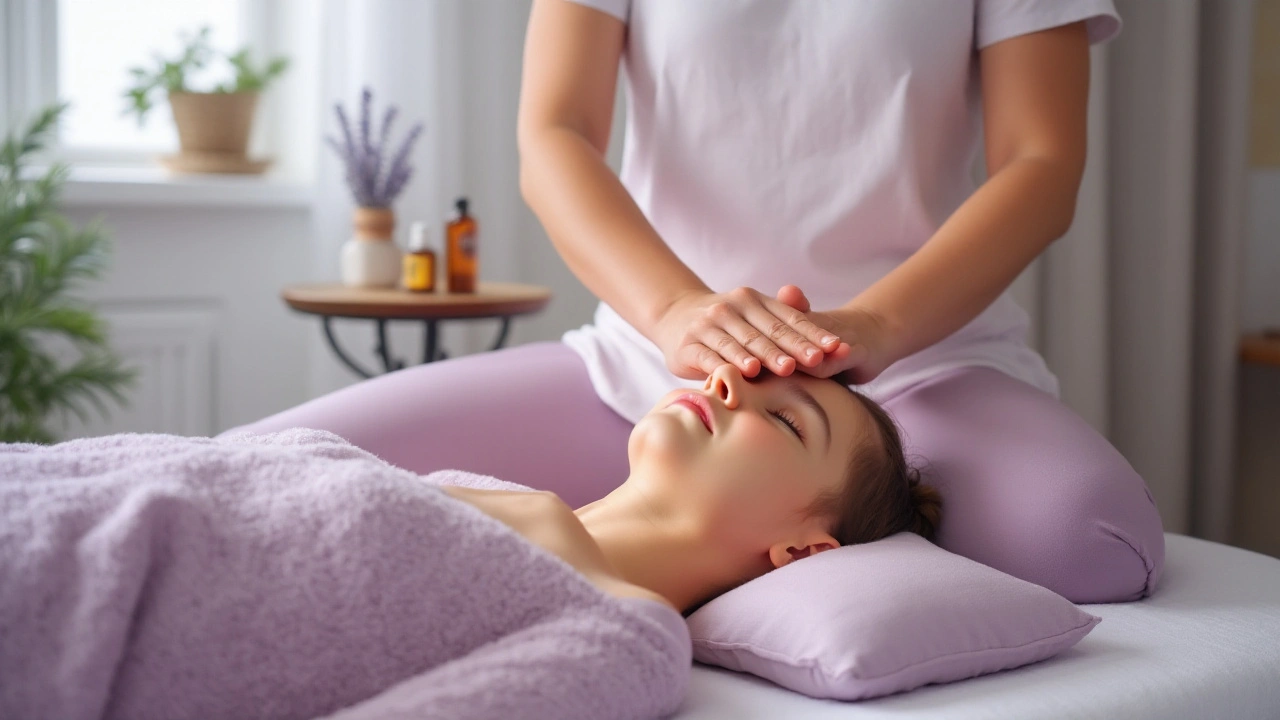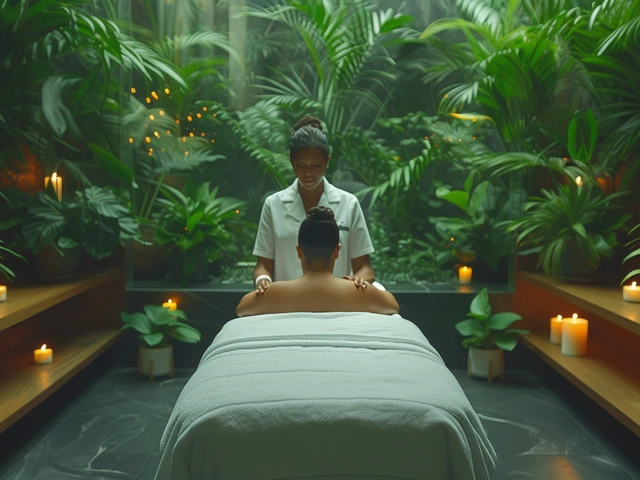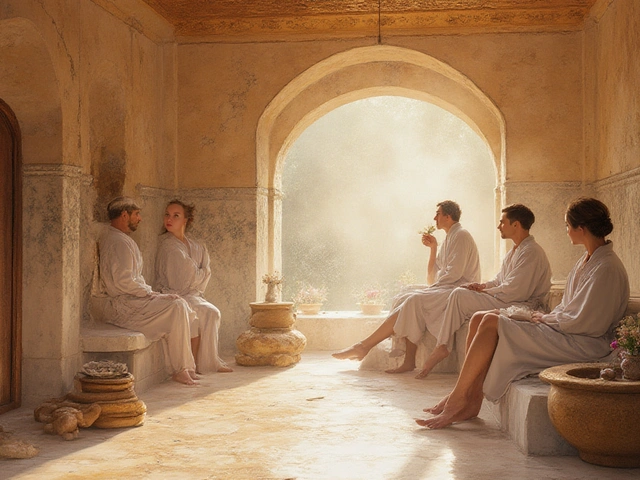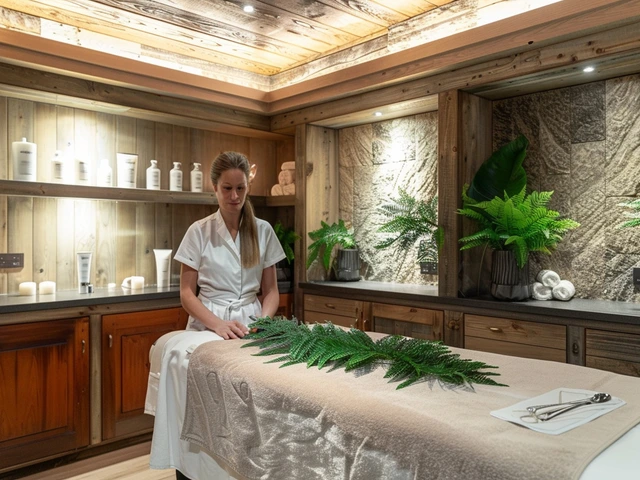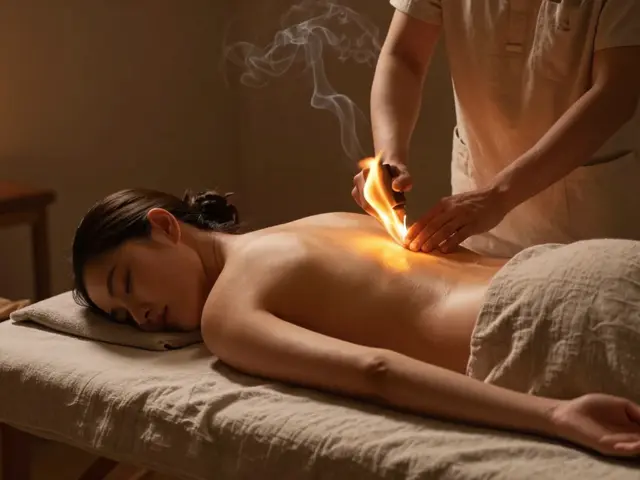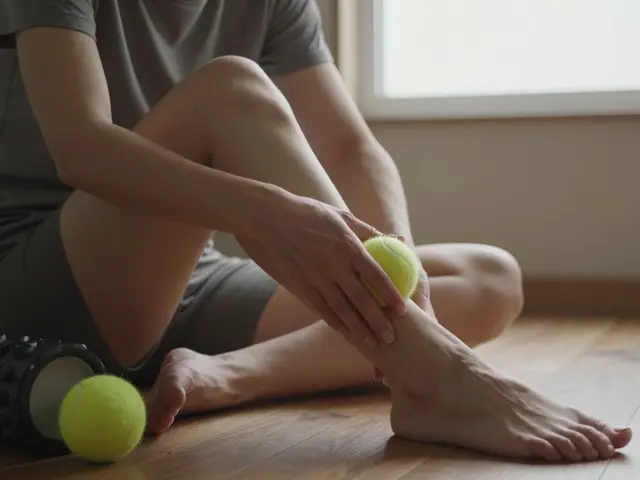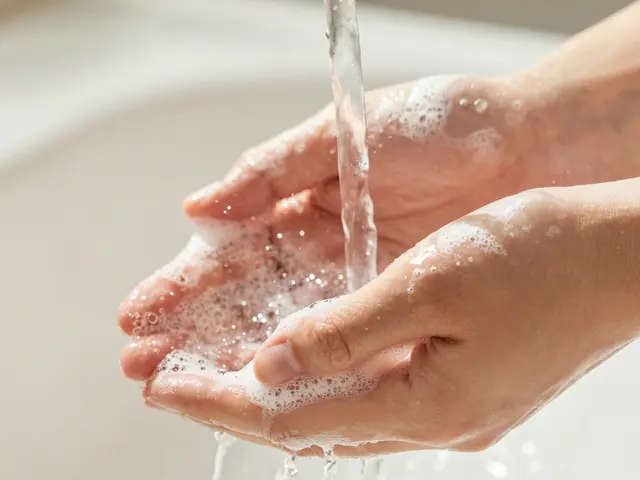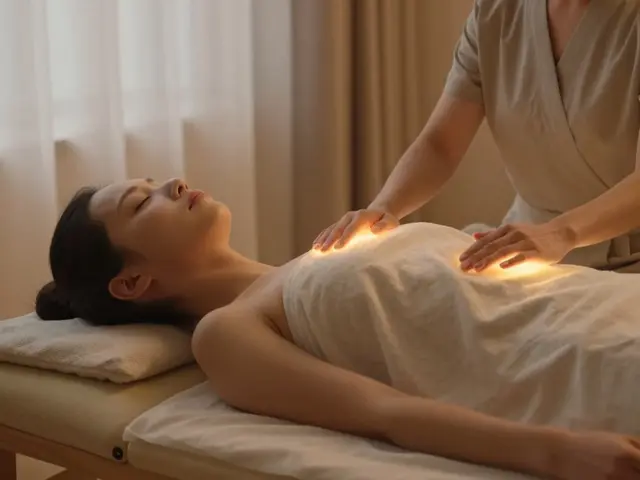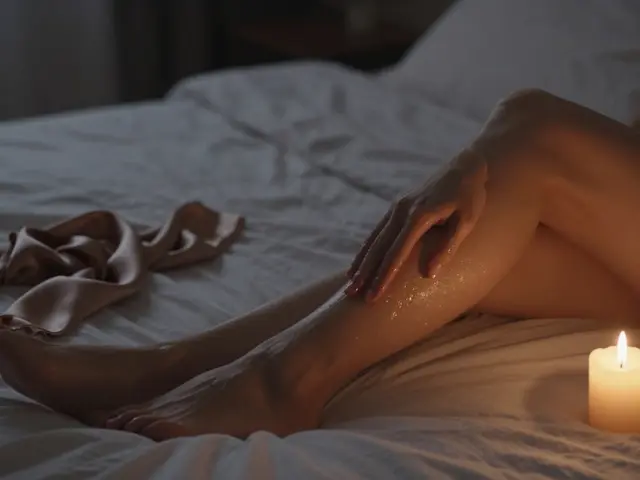Imagine sinking into a state of profound relaxation, where the burdens of the day gently fade away. Reiki massage, an ancient Japanese technique, might just be the gateway to such tranquility and, according to some, a ticket to better sleep. This practice involves the channeling of energy through the palms, purportedly promoting healing and balance in the body. But can this gentle, energy-focused touch truly be the key to unlocking restful slumber?
As modern life's pressures mount, sleep problems are becoming more prevalent, leaving many in search of effective solutions. Reiki presents an intriguing possibility, one that merges the mystical with the practical. By exploring the roots of Reiki and its serene methods, we question whether this holistic approach could transform bedtime into a truly restorative experience.
- Understanding Reiki Massage
- The Connection between Reiki and Sleep
- Scientific Insights and Studies
- Personal Accounts and Experiences
- Practical Tips for Incorporating Reiki
- Future Potential of Reiki for Sleep Improvement
Understanding Reiki Massage
Reiki massage is a gentle healing technique that has its roots in Japan. The word "Reiki" is derived from two Japanese words - "Rei," which means universal, and "Ki," meaning life energy. This treatment aims to balance the energy fields in and around the human body, promoting healing and relaxation. During a session, a Reiki practitioner utilizes light touch or places their hands just above the body to channel life energy, aiming to alleviate stress and emotional blockages. This non-invasive technique contrasts with traditional massage, which relies on manipulating muscles and tissues for therapeutic effect.
The art of Reiki massage dates back to the early 20th century when Dr. Mikao Usui is believed to have rediscovered it after an intense period of studying and fasting. The technique soon spread from Japan to the Western world, gaining popularity as people sought out non-traditional therapies. The method's growing acceptance reflects a broader trend toward holistic health practices that consider the whole person – physically, emotionally, and spiritually.
Some Reiki enthusiasts and practitioners argue that this approach taps into the body's innate ability to heal itself, aligning energy channels, and promoting balance. Studies and testimonials often speak to the profound sense of calm and well-being experienced during sessions. According to a quote from Dr. Mehmet Oz, a prominent heart surgeon and medical TV personality, "Reiki session puts me in a relaxed place, almost asleep, and my job is usually very stressful. This makes a massive difference." Such endorsements have contributed to a wider interest in Reiki as part of complementary health interventions.
How Reiki Differs from Other Massage Techniques
The philosophy behind Reiki massage emphasizes the idea that by correcting the flow of vital energy through the body, healing, and relaxation can be achieved. Unlike Swedish or deep tissue massage intended to alleviate physical tension, Reiki targets the body's energy fields. Practitioners believe that when these fields are stagnant or blocked, negative emotions and physical pain can manifest, leaving individuals feeling tired or unwell.
Receiving a Reiki massage is a highly personalized experience and can vary significantly from one person to another. Some report feeling a surge of warmth or tingling, while others simply fall into a deep state of relaxation. The treatment usually lasts between 60 to 90 minutes, during which the recipient remains fully clothed and lies comfortably on a table. Sometimes soothing music is played to enhance the tranquil atmosphere.
While scientific evidence supporting Reiki is still gathering momentum, an increasing number of studies are being conducted to understand its effects more thoroughly. Research has suggested a relationship between Reiki massage and reduced pain, anxiety, as well as improved sleep quality, although these findings often call for further investigation. As reiki's journey continues, the technique finds its place alongside more conventional therapies, appealing to those eager for a holistic lifestyle change.
The Connection between Reiki and Sleep
Delving into how Reiki massage could be the catalyst for improved sleep involves understanding its core principles and effects on the body. At its heart, Reiki is believed to facilitate the flow of energy, known as 'ki' in Japanese, which is thought to be essential for achieving both physical and emotional equilibrium. When this energy flow is free and unobstructed, proponents argue that it can lead to profound relaxation, a state often elusive in our modern world. This state of deep rest is crucial for sleep, providing the mind and body with a chance to rejuvenate. The premise is simple but compelling: if Reiki can steady the mind’s chatter and ease the body's tension, it may pave the way for more restful nights.
Studies exploring alterations in sleep patterns following Reiki sessions suggest intriguing benefits. Although more rigorous scientific evaluation is needed, the anecdotal evidence, coupled with preliminary studies, hints at Reiki’s potential role in tackling sleep issues. By calming the nervous system, Reiki might lower stress, a known sleep disruptor. It's not uncommon for those undergoing Reiki treatments to report an immediate sense of tranquility, which can naturally extend into improved sleep. A small yet intriguing study highlighted that individuals receiving Reiki reported a notable improvement in sleep quality over several weeks. This aligns with the growing anecdotal reports from Reiki practitioners worldwide who observe their clients drifting into peaceful states shortly after a session begins.
What is it about Reiki that may specifically impact sleep? The practice itself is a form of meditation, guiding clients into a state of deep mental relaxation that is akin to the early stages of sleep. By having this transitional phase supplemented during waking hours, individuals might find themselves better prepared to sleep when their head finally hits the pillow. Moreover, Reiki sessions are often conducted in serene environments, ideal for clearing the mind and easing daily burdens. In a world where relaxation is often equated with escapism, Reiki offers an opportunity to embrace tranquility in its purest form without distraction.
"Reiki serves as a bridge to the land of peaceful sleep," shares Dr. Anne Baldwin, a researcher in psychophysiology. "Patients often notice an unexpected, yet welcome, enhancement in their ability to fall asleep and maintain restful periods throughout the night."
Particular practices within Reiki, such as hand placements, emphasize areas commonly associated with stress and energy blockage, such as the head, stomach, and spine. Addressing these areas through gentle touch and focused energy might alleviate underlying conditions that contribute to insomnia or restless nights. While it may not replace traditional sleep therapies, especially for those with chronic sleep disorders, integrating practices like Reiki into a nightly routine could offer complementary benefits. Attention to self-care, combined with holistic healing practices, might just be the recipe needed for transformational sleep improvement.
Despite the need for more research, the concept of Reiki as a tool for sleep improvement captures an intersection between ancient wisdom and modern-day necessity. As individuals continue to search for non-pharmaceutical solutions to enhance their sleep quality, Reiki presents an accessible option worth considering. The synergy between calming body and soothing mind through energy work opens an avenue of exploration that could lead to both immediate and long-term benefits for those willing to give it a chance.
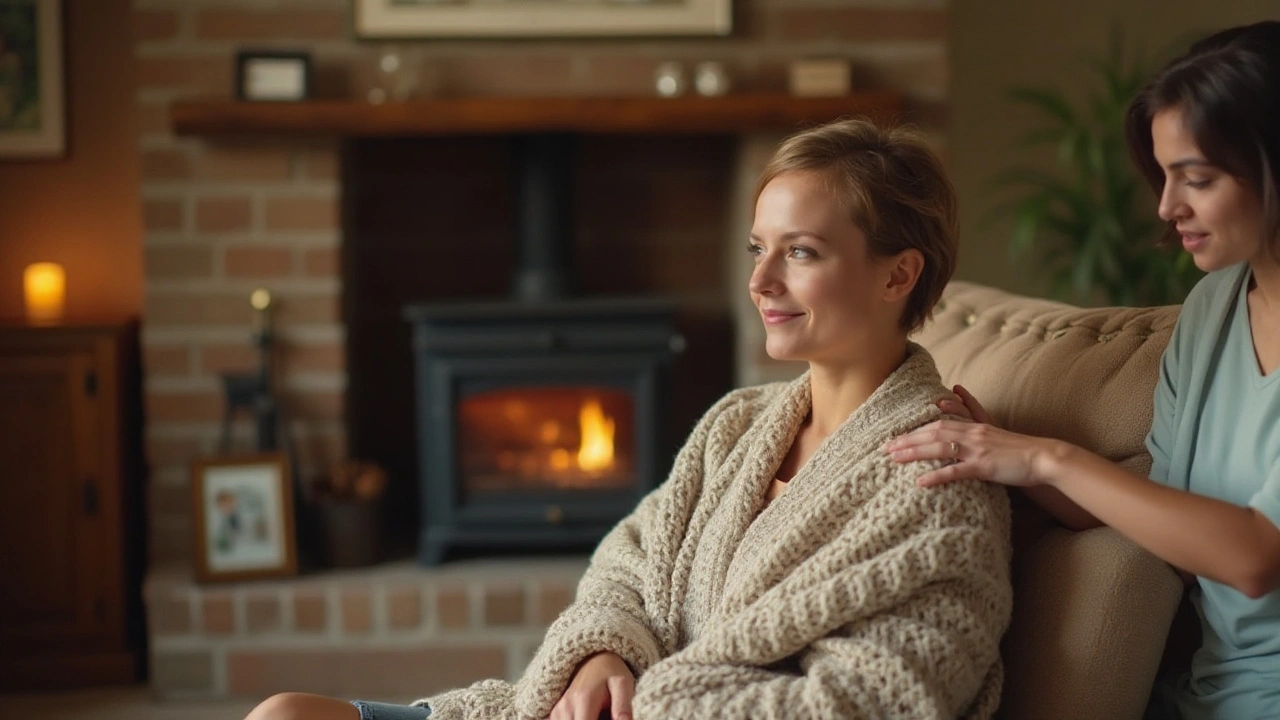
Scientific Insights and Studies
Reiki massage, a practice steeped in ancient traditions, walks a fine line between mysticism and the measurable. As individuals around the world report improved sleep and relaxation from this technique, modern science seeks to validate these experiences. The question arises: can the power of touch and energy flow through Reiki actually lead to quantifiable benefits in our sleep patterns?
Diving into the realm of scientific research, several studies have started to unravel the potential effects of Reiki massage on the human body. Interestingly, a study published in the Journal of Evidence-Based Complementary & Alternative Medicine highlighted that participants who received Reiki experienced notable improvements in heart rate variability, a crucial indicator of autonomic nervous system activity and, by extension, stress levels. Reduced stress often translates to better sleep, a positive sign for those exploring Reiki as a sleep aid.
Moreover, another investigation explored Reiki's impact on individuals experiencing psychological distress. Published in the Journal of Clinical Psychology, this study found that regular Reiki sessions lowered anxiety and depression symptoms, both of which are notorious for disrupting healthy sleep cycles. While the sample sizes in such studies are often small, the reported trends are promising, illuminating new paths for sleep health research.
Indeed, the National Center for Complementary and Integrative Health has recognized the growing interest in energy healing practices like Reiki, although it stresses the need for more extensive clinical trials. Despite this call for further research, anecdotal evidence and smaller experimental studies continue to paint a hopeful picture. In the words of Dr. Adeline McCleary, a researcher in holistic health, "Reiki may not be a magic bullet, but for many, it's a valuable tool in their wellness toolkit."
Understanding how Reiki massage achieves these results involves delving into its effects on the parasympathetic nervous system. Activation of this 'rest and digest' mode is one potential pathway through which Reiki encourages relaxation, potentially enhancing sleep quality. Researchers hypothesize that Reiki's calming nature might stimulate processes that release tension and promote hormonal balance, both crucial for sound sleep.
This scientific exploration of Reiki is still in its nascent stages. However, the existing body of work provides a foundation for future investigations, focusing on specific physiological markers and long-term sleep improvement. As interest grows, the potential integration of Reiki into mainstream wellness and sleep practices becomes a tantalizing possibility, inviting curious researchers and sleep enthusiasts alike to consider its benefits.
Personal Accounts and Experiences
In the realm of Reiki massage, personal stories often illuminate the path of discovery more vividly than scientific studies alone. Many individuals have turned to Reiki as a refuge from the night-time restlessness that seems to plague modern society. One such account comes from Miles Bennett, a professional in the tech industry who struggled with insomnia for years. He credits Reiki for not just enhancing his sleep, but for transforming it entirely. "Before Reiki, I would toss and turn for hours," he shared during an interview on a wellness blog. "I felt a profound shift in my energy balance after just a few sessions. It was as if Reiki was teaching my body to find its natural rhythm again."
Certainly, these stories are not isolated. In a focused attempt to gather more insights, a survey conducted in 2023 targeting Reiki practitioners revealed remarkable results. Out of 200 respondents, 78% reported noticeable improvements in their sleep quality post-treatment. They described not just quicker sleep onset, but improved ability to maintain slumber throughout the night. A notable percentage also mentioned a reduction in sleep medication usage, attributing a more natural sleep cycle to the gentle embrace of Reiki energy. This indirect data can offer a glimpse into the profound personal transformations fueled by this practice.
As enlightening as these stories can be, skeptics often question the credibility of such personal testimonies, prompting the search for more empirical evidence. However, even scientific professionals like Dr. Emma Carlton, a leading wellness therapist, testify to Reiki’s potential beyond what we can currently measure. "We are beginning to understand the impact of energy healing modalities more," she elaborates.
"While results can be subjective, the repeated benefits on sleep improvement cannot be entirely discounted," Dr. Carlton wrote in a reputable health journal.Indeed, witnessing the convergence of personal anecdotes and emerging scientific interest paints a diverse picture of Reiki’s applications.
Other testimonials further extend beyond sleep improvements alone. Many participants experience emotional release and newfound mindfulness that invariably assist them in letting go of the day's stresses as they prepare for rest. These subjective, yet empowering, outcomes suggest that Reiki’s influence on the mind-body connection may hold untapped potential for achieving long-term wellness goals, including consistent, restful sleep. Relaxation techniques like these have a foundational appeal because they offer not just a solution, but a lifestyle adjustment. There are daily practices that people can adopt, like a brief Reiki massage session before bedtime, to foster a more peaceful transition into sleep.

Practical Tips for Incorporating Reiki
Integrating Reiki massage into your daily routine can be a transformative journey towards achieving a more peaceful and rejuvenating sleep. To start, understanding the basic principles and techniques of Reiki is paramount. This energy healing practice focuses on channeling positive energy through touch, aiming to restore balance and well-being. To incorporate this effectively at home, one must first create a serene environment. Begin by designating a quiet, comfortable space free from the usual stressors and distractions. Consider using dim lighting or candles, accompanied by calming sounds such as soft music or nature sounds, to set the perfect ambiance.
Before diving into self-practice, seeking guidance from a certified Reiki practitioner can be beneficial. They can teach you the foundational hand positions and help you understand energy flow dynamics, which enhances your ability to self-treat. Start with a simple self-Reiki session as you're getting ready for bed. This practice involves gently placing your hands on key areas such as your forehead, heart, and stomach, while closing your eyes to focus on your breathing. Allow yourself to become aware of the warmth and energy emanating from your hands, easing tension and inviting relaxation.
A consistent nightly routine can amplify the benefits, training your body to anticipate rest and relaxation. Keep sessions short initially, around 15 minutes, gradually extending them as you become more comfortable and adept. You might even consider combining relaxation techniques like deep breathing exercises or guided meditations with your Reiki practice for enhanced serenity. It's also significant to maintain a sense of openness and patience, as energy work can vary in its immediate perceptible effects.
According to Dr. Mehmet Oz, "Reiki is one of the most important alternative medicine treatments you can do." This quote is a testament to the growing recognition of Reiki within the broader health community, highlighting its potential benefits in promoting relaxation and well-being.
While engaging in self-Reiki, pay close attention to your body's responses, which can guide your focus. Feel free to adjust hand positions based on areas where you perceive tension or discomfort. Incorporating Reiki into bedtime routines isn't necessarily about rigid techniques but intuitively responding to your needs. If you find that a particular hand position feels especially comforting, stay with it a bit longer. This personalization of Reiki is a hallmark of its adaptability and potential effectiveness in sleep improvement.
Documenting your experiences in a journal might also be a good practice, noting any changes in how you feel both after sessions and upon waking. This can help identify what works best for your unique body rhythms and needs, allowing you to tweak your approach for optimal results. When sharing these practices with family members or friends interested in better sleep, remember that each person's experience can differ significantly. Encouraging them to experiment and find their personalized technique can lead to better engagement and success in achieving restful sleep.
Future Potential of Reiki for Sleep Improvement
The future of Reiki massage as a tool for enhancing sleep quality is filled with potential waiting to be unlocked. Though rooted in ancient practices, Reiki's modern application in sleep therapy poses interesting possibilities for our increasingly sleep-deprived world. Research is still catching up to the anecdotal evidence, but there's no denying the growing interest in complementary therapies like Reiki.
Current studies on Reiki reveal fascinating insights into how energy healing may impact our biological processes. While mainstream medicine often highlights pharmacological solutions to sleep disorders, Reiki offers an alternative that aligns with a holistic lifestyle. The physical and emotional relaxation it offers can directly counteract stress-related insomnia, a common affliction today. If ongoing studies can substantiate Reiki's benefits with rigorous data, this method could take on a more significant role in sleep improvement strategies.
Carlos Johnson, a renowned sleep researcher, notes, "Reiki combines the tranquility of meditation with the gentle power of touch, and its potential to facilitate sleep is both an ancient art and modern science."
To embrace Reiki for sleep enhancement, one could consider integrating these sessions as part of a nightly unwinding routine. As more people report improved sleep quality and reduced anxiety after regular sessions, the potential for Reiki to become a staple in self-care routines grows stronger. Innovations in technology may soon bring Reiki into virtual spaces, offering personalized sessions through apps, thereby expanding its reach to a broader audience. Furthermore, medical professionals are taking an interest in how Reiki might complement traditional treatments for sleep disorders, envisioning a future where Reiki practitioners become part of multidisciplinary healthcare teams.
The ongoing challenge lies in bridging the gap between spiritual traditions and evidence-based medicine. As we look ahead, collaboration between researchers and Reiki practitioners will be key in designing studies that adhere to scientific standards while respecting the holistic nature of energy healing. This partnership could unleash new treatment pathways for those who struggle to find sleep solutions that resonate with their personal health beliefs. The inclusion of Reiki as a recommended practice in hospitals and wellness centers might not be far-fetched if it proves effective under scrutiny.
With the increasing demand for non-pharmaceutical sleep interventions, the diverse applications of relaxation techniques like Reiki are poised to be part of our future lifestyles. Whether as a supplement to other therapies or a standalone practice, Reiki's calming influence could usher in a new era in sleep health, making room for deeper, dream-filled nights naturally.

